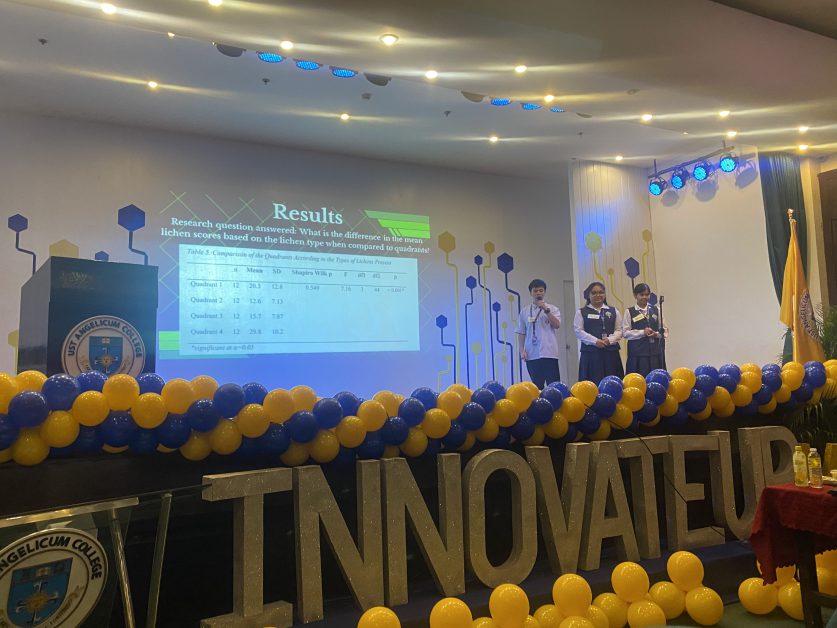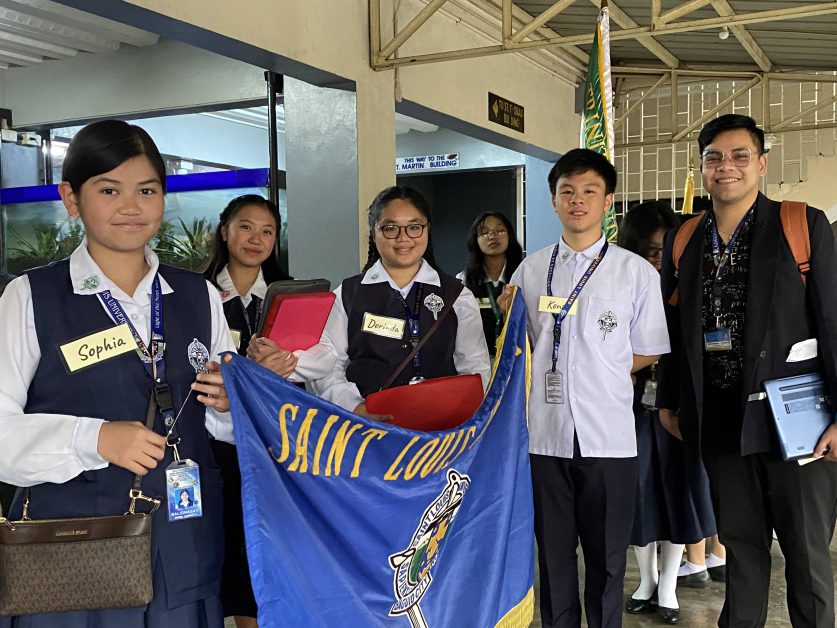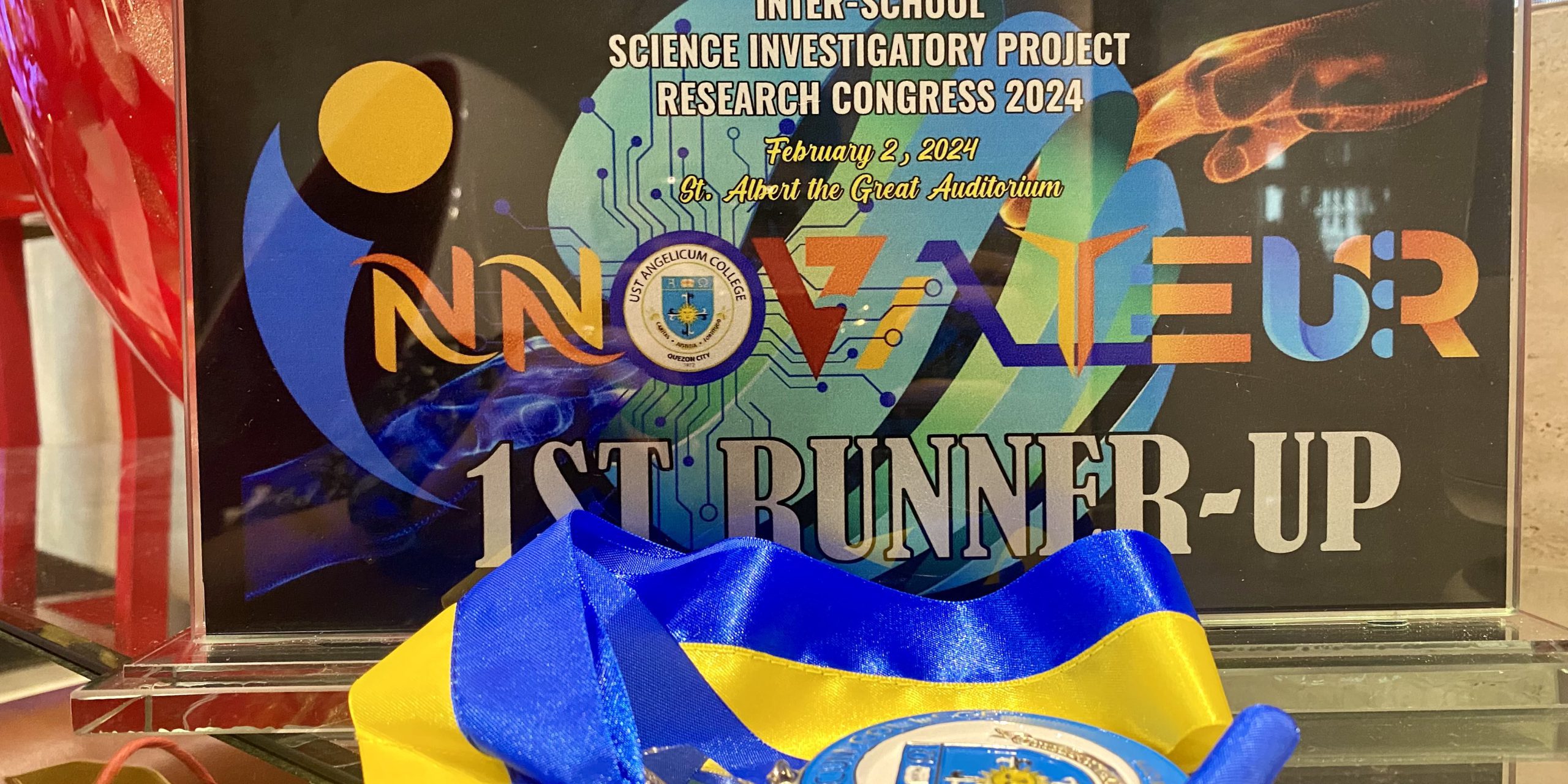Saint Louis University Basic Education School demonstrated its commitment to scientific excellence at the Innovateur 2024: Science Investigatory Project Research Congress hosted by the University of Santo Tomas Angelicum College in Quezon City on 2 February 2024. From an initial pool of participating Junior High Schools with completed Science Investigatory Projects (SIPs), SLU BEdS stood out with two research groups among the top five entries.
Lara Annika Paula E. Namoca earned the distinction of 1st runner-up, while the research group composed of Kenzo B. Barrozo, Dorinda Divine C. Malecdan, and Sophia Ysabelle A. Balignasay were recognized as finalists. Their commendable achievements reflect the dedication of both students and their research adviser, Mr. John Michael A. Guerzon, to scientific research and innovation.
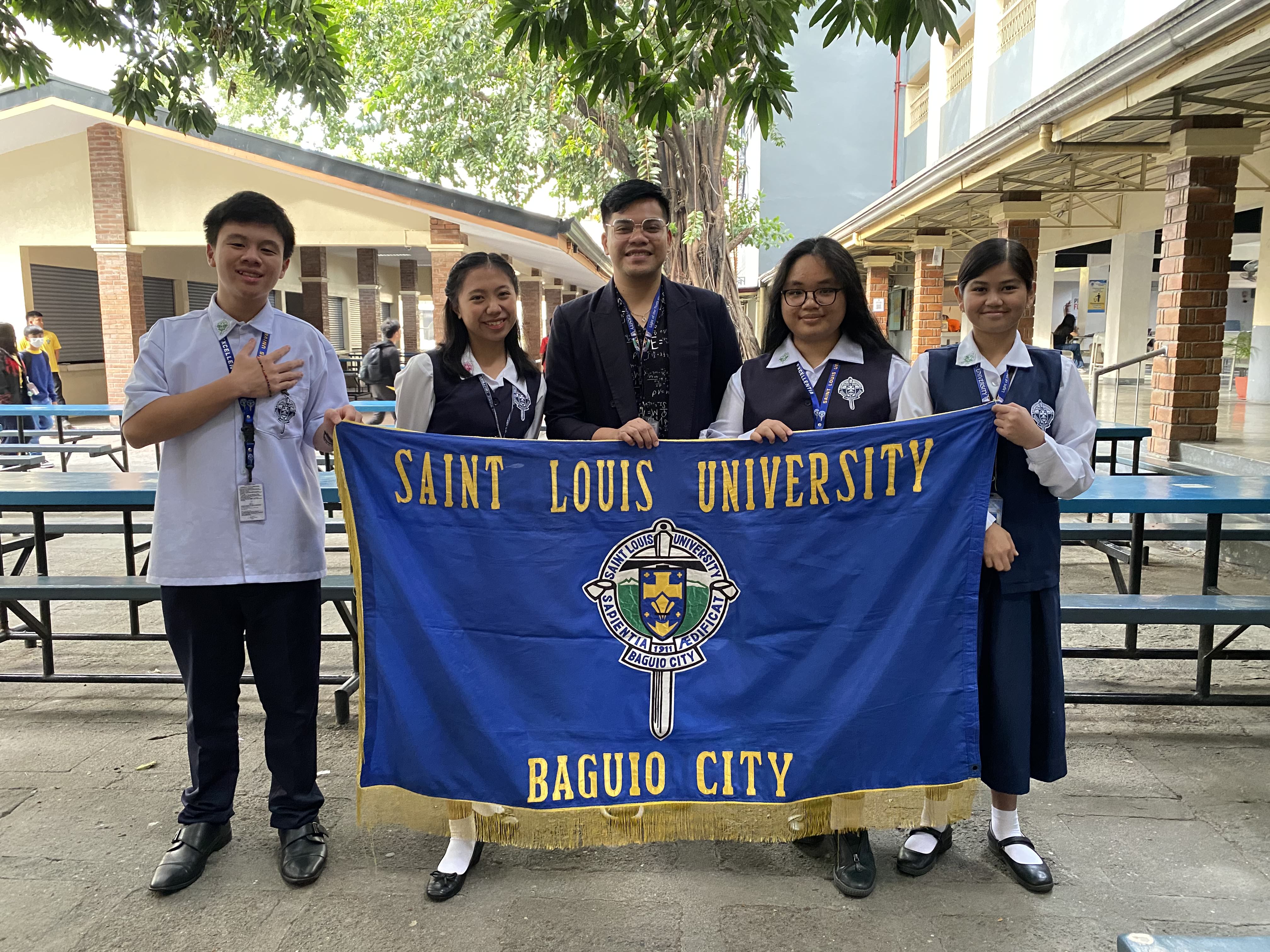
Ateneo de Manila University Junior High School claimed the Champion and 2nd runner-up places. Other top-caliber schools that were shortlisted for the congress are Trinity University of Asia and UST-Angelicum College.
The congress, held to encourage critical thinking, communication, collaboration, and creativity among learners engaged in scientific investigation, provided a platform for SLU BEdS to showcase their knowledge, skills, and unique Louisian values in addressing practical problems through innovative solutions. Lara Annika Paula E. Namoca’s insightful study on the application of plant growth regulators to enhance stevia production directly contributes to Sustainable Development Goal 3 (SDG 3) – Good Health and Well-Being. By exploring methods to increase the yield of this natural sweetener, her research aligns to ensure healthy lives and promote well-being for all at all ages.
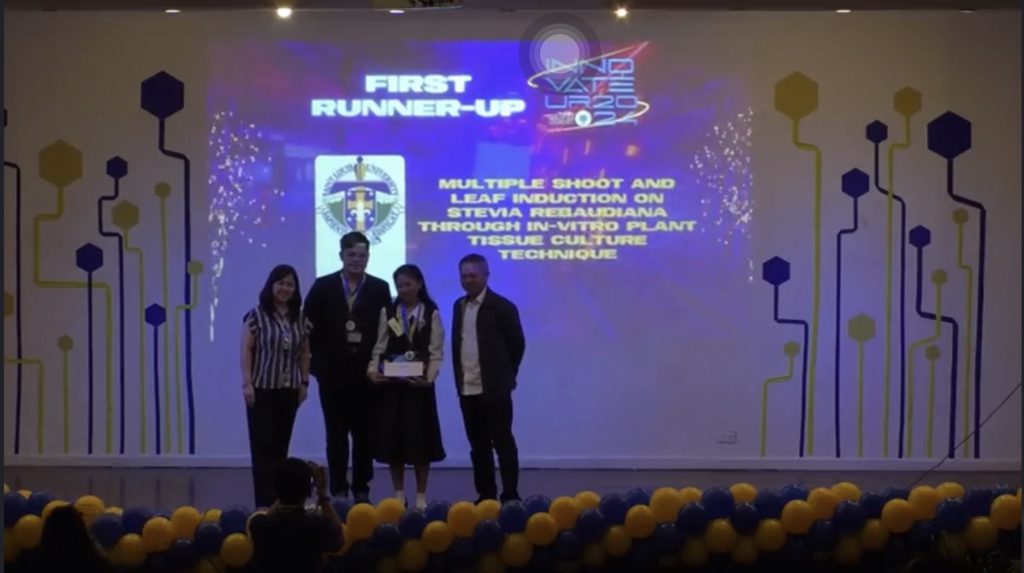
In parallel, Kenzo B. Barrozo’s group, focusing on SDG 15 – Life on Land, investigated the biodiversity of lichens to assess air quality. This work addresses the goal of protecting, restoring, and promoting sustainable use of terrestrial ecosystems. Monitoring air quality through biodiversity indicators such as lichens has direct implications for the health and well-being of communities and ecosystems, contributing to a broader sustainability agenda.
Furthermore, these initiatives harmonize with the CICM advocacy on justice and peace. By engaging in research that seeks solutions to environmental challenges and promotes the well-being of communities, SLU BEdS students actively embody the CICM values of social responsibility and advocacy for a more just and peaceful world. Their scientific endeavors not only contribute to academic knowledge but also exemplify a commitment to creating a harmonious and sustainable future. (J.M.A. Guerzon)
